Department of jurisprudence – Educational and scientific activities of the department
Department of jurisprudence
The history of the department
Educational and scientific activities of the department
Material technical base
Achievements
Our graduates and employment
Educational and scientific activities of the department
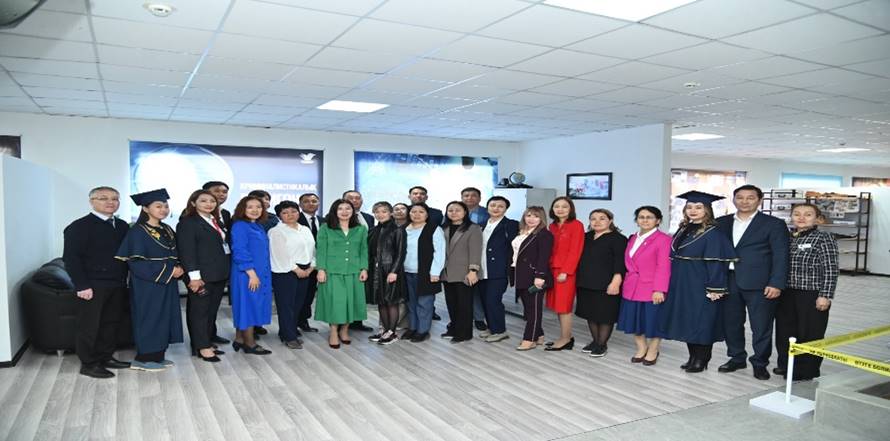
The Department of Jurisprudence carries out educational, methodological and research work. The work of the department is carried out in accordance with the plans of educational, methodological and scientific work. The main tasks of the department are the organization and implementation of educational and methodological activities at a high scientific level within the framework of the studied disciplines, scientific and educational work among students, the organization and conduct of fundamental exploratory and applied scientific research in the profile of the department and the directions of the university, training in the field.
The department conducts all types of educational work, provides comprehensive methodological support for academic disciplines.
The Department of Jurisprudence ensures continuous improvement of the quality of teaching: increasing the level of lectures as the leading form of education, activates practical, seminar, independent studies as effective forms of consolidating knowledge, mastering skills, developing students’ creative abilities, organizes the management of students’ research work, course diploma projects, contributing to the approximation of their conditions to the real conditions of production and research activities. The teaching staff of the department teaches a number of disciplines in the preparation of specialists: bachelors, masters in approved educational programs. The department develops and forms the main professional educational programs.
The current state of the research activities of the faculty of the Department of Jurisprudence is determined by the framework of the university-wide policy in the field of science.
The relevance of the topics in the framework of scientific research is due to the high level of requests from legal practice, general theory of law and industry law. The relevance of the topics increases taking into account the general policy of the state to enter the global legal space and compliance of national law with global standards.
The department has student scientific circles: “Themis”, “Zanger”. The members of the scientific circle are active participants in student conferences, Olympiads and scientific student forums. The main areas of research of the circles are: 1. participation in international scientific seminars; 2. participation in scientific research in priority areas of research work of the department; 3. participation in international, republican, regional conferences; 4. participation of scientific innovative projects in international and republican competitions.
The most important activity of the department is increasing the share of foreign students from the CIS.
The Department has signed agreements on cooperation and joint activities in the field of development of pedagogical and legal education. The close connection of the educational process with production in teaching special disciplines is carried out through professional practice. Contracts are concluded annually with organizations of the city and the region. To get acquainted with the field of professional activity, it is provided that professional practices (educational, industrial) are conducted on the basis of practice, which contributes to good adaptation in the conditions of professional activity.
Students of the educational programs: 6B04201 – “Jurisprudence”, 6B04202 – “Law and law enforcement” have the opportunity to complete professional practice at the practice bases: Aktobe Regional Prosecutor’s Office, Aktobe region Police Department, Aktobe Notary Chamber, Administrator of courts in Aktobe region, NAO “State Corporation “Government for Citizens””. Cooperation has been established with organizations of the region and the city on the organization of educational and professional practices, student employment, research and contractual work. The purpose of concluding contracts with potential employers is the development of mutually beneficial cooperation in the field of training specialists, attracting students to professional practice and their further employment.
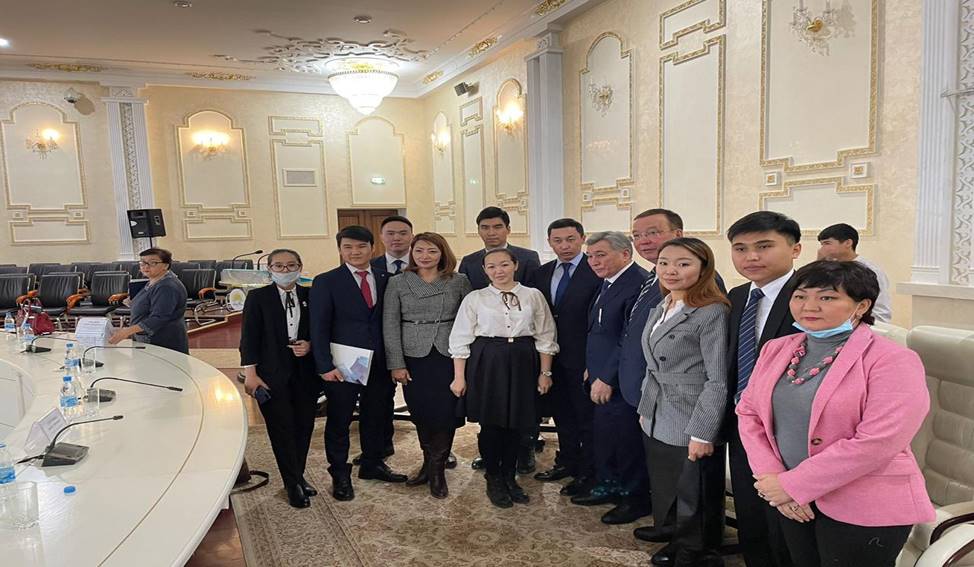
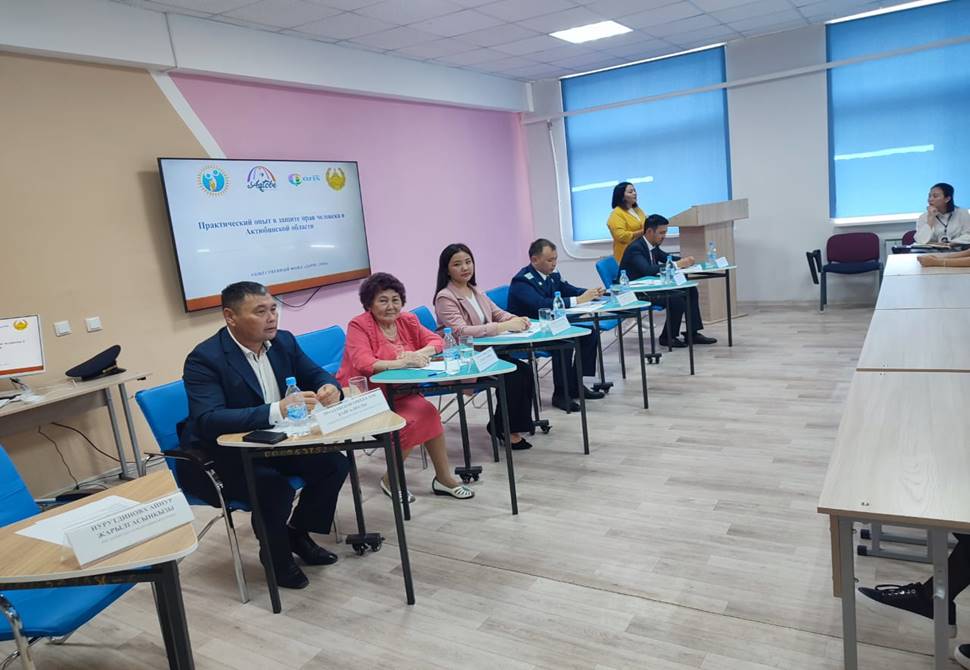
During training, close links between the educational process and production are formed. The proposals of stakeholders are used in the formation of educational tasks (practical exercises), the topics of coursework, within the framework of various disciplines. These proposals are considered at meetings of the department, the educational and methodological council of the faculty and are recommended for implementation within the framework of relevant academic disciplines. Employers participate in the process of developing and implementing educational programs through:
– formation of professional competencies within the framework of the chosen educational program;
– creation of branches of departments at the enterprise;
– organization and conduct of professional practices;
– conducting training sessions, guest lectures, round tables;
– participation in the final certification;
– – reviewing and management of diploma projects;
– joint participation along with teachers and students in scientific conferences of the university.
In order to train highly qualified specialists and in accordance with the instructions of the Head of State aimed at improving the legal culture and literacy of Kazakhstani society, taking into account the needs of the labor market in the legal field, an offer was received from employers to introduce new disciplines into educational programs 6B04201-“Jurisprudence”, 6B04202 – “Law and law enforcement” this will help students find a job and gain the skills necessary for their professional activities.
In order to update educational programs, the Department of Jurisprudence is working to involve representatives of the largest law enforcement agencies of the Aktobe region – prosecutor’s offices, internal affairs bodies, courts of the Aktobe region in the creation of educational programs, taking into account their experience and recommendations for training specialists in the field of law enforcement.
In order to strengthen the practice orientation of the specialty 6B04201-«Jurisprudence», 6B04202 – «Law and law enforcement», practitioners, employers who proposed the introduction of elective disciplines into educational programs took an active part in the formation of a Modular educational program and a catalog of elective disciplines: Zhamiev A.Sh. – judge of the specialized interdistrict administrative court of Aktobe region, Sabyrbaeva M.E. – judge of the Aktobe City Court, V.A. Abdullina. – senior investigator for particularly important cases of the Investigative Department of the Police Department in the Aktobe region, Adil D. K. – Senior prosecutor of the Prosecutor’s Office of the Aitekebiy district, Anuarbekov A.S. – Prosecutor of the Prosecutor’s Office of the Astana district of Aktobe, Ersarinova D.K. – Head of the personnel department of the branch of the NAO «State Corporation «Government for Citizens» in the Aktobe region. Practitioners recommended introducing new disciplines into the educational process – «Digitalization of procedural activities», «Legal bases for the provision of public services”, “Activities of the prosecutor’s office», «Special proceedings in criminal proceedings», «Electronic government».
At a meeting of the Department of Jurisprudence, when discussing the Plan for the development of educational programs 6B04202 – «Law and law Enforcement», V.S. Abdullina made a proposal for the participation of students in projects. Thus, a 2nd year student Ayapova Ayaulym received a first degree diploma in the competition «Men adal studentpin», organized by the front office of «Sanaly Urpak» ARU. K.Zhubanova, together with the Department of the Agency of the Republic of Kazakhstan for Combating Corruption in the Aktobe region, she studied at Turan University in Astana at the anti-corruption school «Sanaly Urpaq 2018», Kemalova Azharkul received a diploma in a video contest among volunteers in the nomination «Good Deeds-2018».
Annually Aktobe Regional University named after K. Zhubanov holds events – «Open Day», «Job Fair». As part of these university events, graduate students have the opportunity to meet with the heads of the practice bases of the Department of Jurisprudence.
In 2016, elements of dual education were introduced in universities of Kazakhstan. The purpose of the introduction of elements of dual training is the qualitative mastering by students of the basic vocational training programs and their acquisition of practical skills in the professional field.
The organization of the educational process with the introduction of elements of dual education at the university is carried out in accordance with the agreements of the branches of the department and the bases of professional practice. The elements of the dual learning system are used in the educational process. Laboratory, practical classes, professional practice, course, diploma design are carried out in production, in organizations of the relevant profile and at branches of the Department of Jurisprudence. There are branches of the department on the basis of organizations and enterprises.
In order to improve the educational programs of the Department of Jurisprudence and cooperation with educational institutions of the Republic and neighboring countries, agreements have been concluded with universities of Kazakhstan, in particular with Al-Farabi Kazakh National University, M.Utemisov West Kazakhstan State University, L.Gumilev Eurasian National University, Baishev University, Aktobe Law University, in order to develop joint educational programs the Institute of the Ministry of Internal Affairs of the Republic of Kazakhstan named after M.Bukembayev, Kazakh-Russian International University, with Grodno State University named after Yanka Kupala, Orenburg State University, Pomeranian Academy in Slupsk (Poland), Sakarya University (Turkey).
The teachers of the department organize educational and methodological conferences, seminars, etc.: regional conferences on innovative teaching methods; university-wide methodological seminars and methodological seminars on the educational programs of the department.
As part of career guidance, teachers of the department annually hold meetings with high school students in Aktobe, Aktobe region. ARU named after K. Zhubanov annually holds the «Zhubanov Olympiad». At the Faculty of Economics and Law, in order to attract school graduates, teachers of the Department of Jurisprudence hold a legal Olympiad for schoolchildren.
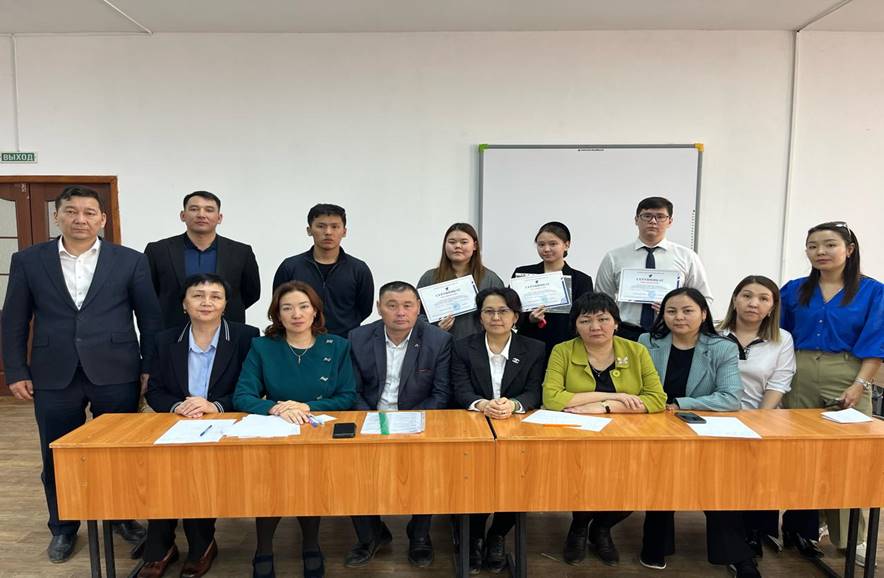
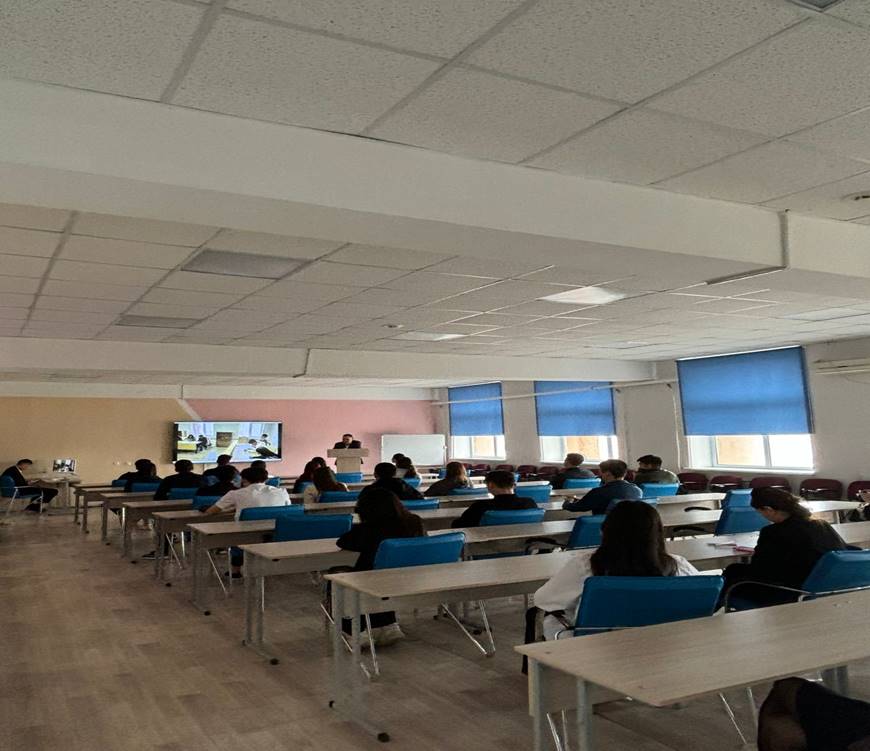
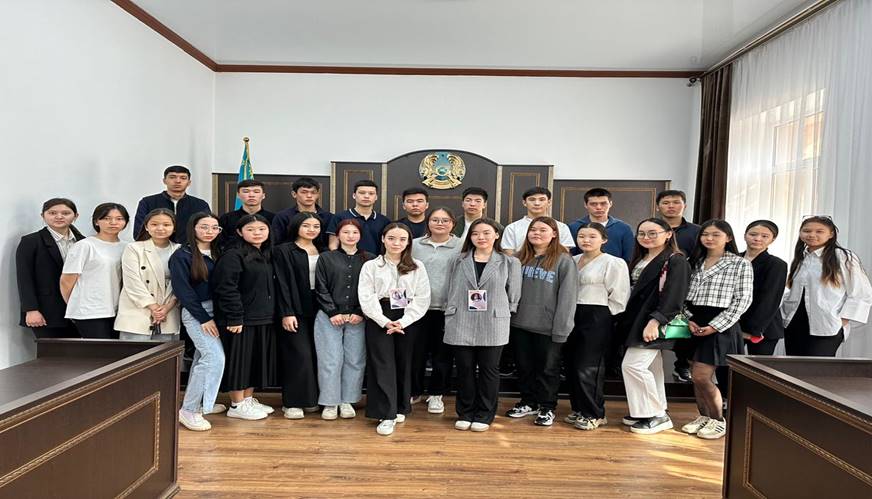
Research work is one of the most important activities of the department. The teaching staff of the department organizes scientific and practical conferences of various levels, including: international scientific conferences. Considerable attention is paid at the department to the scientific work of students. They perform final qualification works in the disciplines of the department, actively participate in the activities of scientific student circles “Adilet”, “Zanger”, make presentations at student scientific conferences.
The results of research work are tested in the form of articles published in journals of the KKSON of the Ministry of Education and Science of the Republic of Kazakhstan, periodicals, including countries of the far and near abroad, in collections based on the results of participation in international and republican conferences of theoretical and practical directions, participation in round tables and scientific seminars.
During the teaching of basic and elective disciplines, the development of educational and methodological complexes of disciplines, theoretical and practical results of scientific research are introduced into the educational process. On the basis of textbooks and scientific monographs prepared by teachers, author’s courses and special courses have been developed, which are offered by the department as elective subjects and additions to the basic disciplines in the relevant specialties and are included in the curricula.
The educational and methodological work of the department is carried out in accordance with the educational and pedagogical load. Among the innovative methods most often used by teachers in teaching, case studies, business games, role-playing games, brainstorming, project method, discussion, press conference, working with small groups, round table, lecture-visualization are used. Teachers organize and participate in methodological seminars in order to improve professional, methodological skills, master innovative teaching methods, master new technologies in teaching, including acquiring skills to use the capabilities of digital technologies associated with the transition to an online format, discuss issues of improving the quality of education, exchange opinions, exchange information.
According to educational programs, the library is annually replenished with educational literature. The availability of the electronic version of textbooks and video lectures in open online courses has increased the quality of the provision of educational programs with literature.
Independent work of students is an integral part of the educational process aimed at improving the quality of knowledge obtained during the study of the discipline of the curriculum, the formation of the student’s need for self-education, self-development and self-improvement. In the process of independent work, the student is recognized as an active participant in the educational process, acquires skills of critical and creative thinking, creative thinking, acquires qualifications capable of expressing his views and thoughts.
Ways to improve the base of teaching tools and innovative methods are considered at meetings of the department and the methodological council. The experience of implementing the most relevant and effective methods is the object of an exchange of experience between teachers through open and visual classes and is fixed in the UMS plan.
Teachers of the department have the opportunity to conduct classes in specialized classrooms: Courtroom, Forensic training ground. In 2024, the Krimtech landfill was opened.
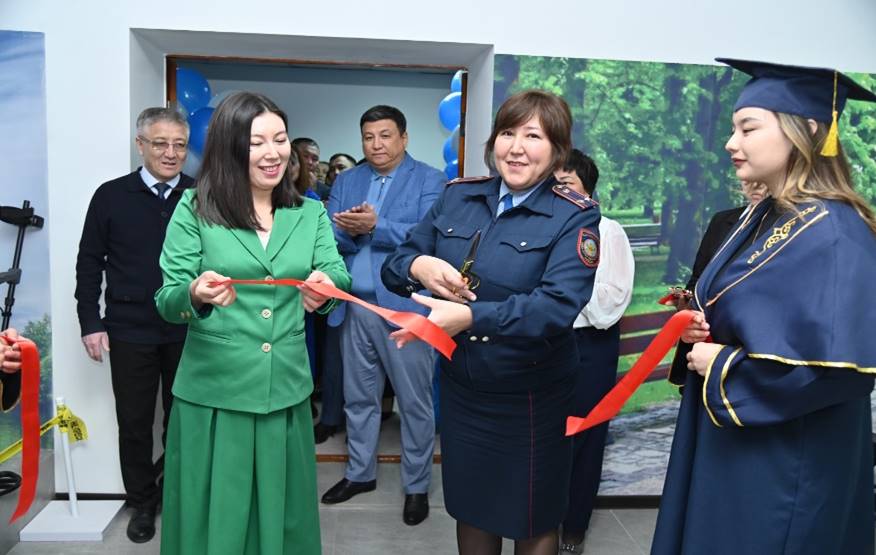
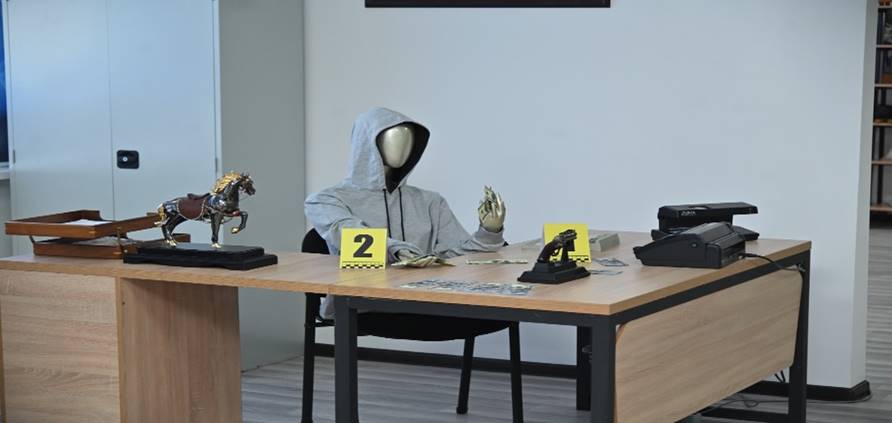
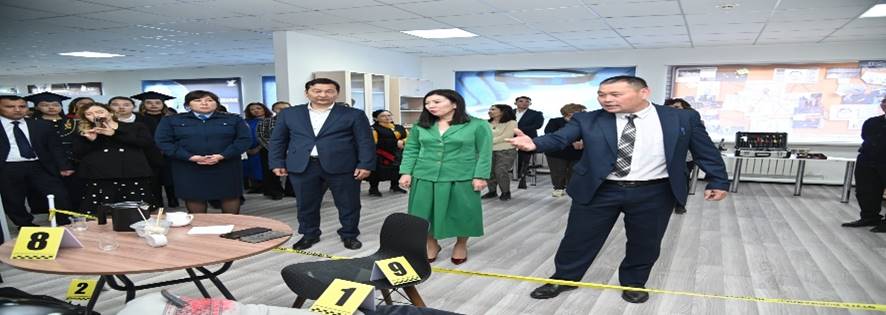
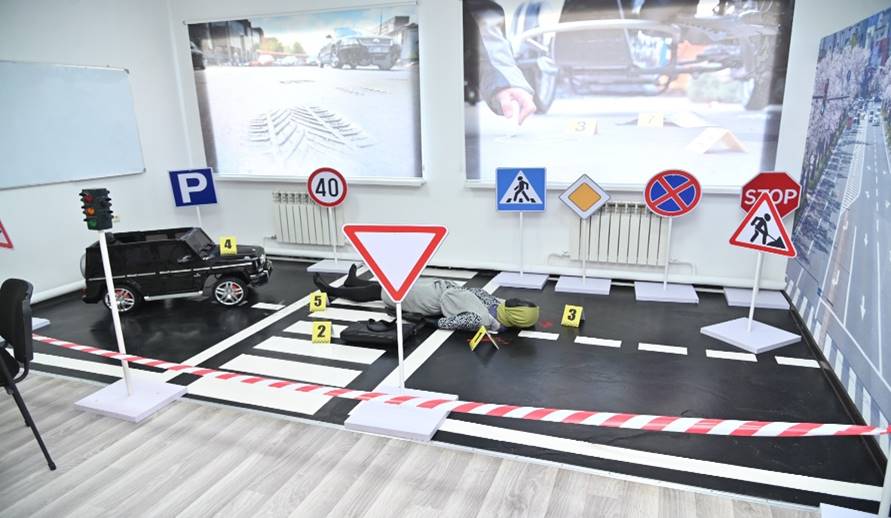
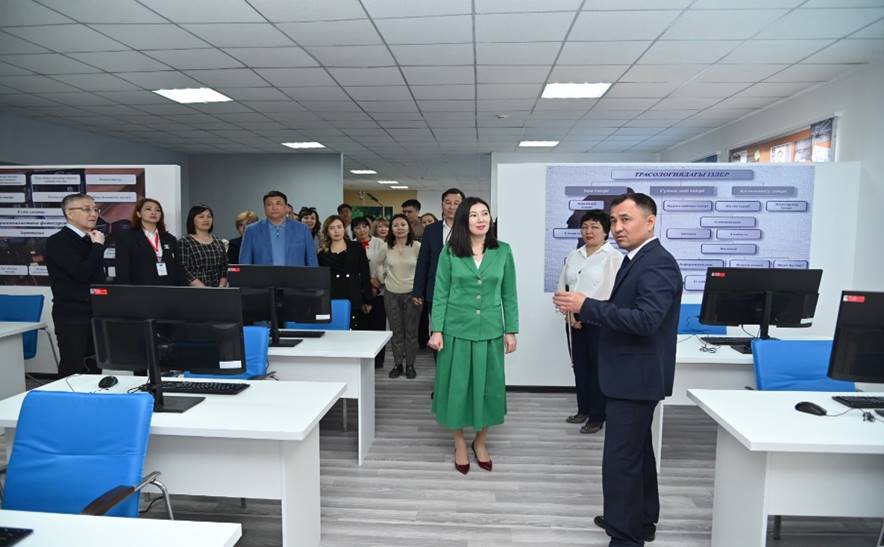
One of the main directions of the department’s work is the introduction of creative technologies into the educational process. The teachers of the department carry out the following activities to introduce innovative technologies into the educational process:
1.in order to increase the motivation of students, develop the creative abilities of students by the teachers of the department, the following types of lectures are used: multimedia lecture, guest lecture, lecture with pre-planned mistakes, lecture-discussion, problem lecture;
- Teachers of the department apply various types, methods, and techniques of practical training: creative tasks, learning in association, project methods, decision trees, role-playing and business games, case method, situational analysis, discussion.
The educational process uses handouts, interactive whiteboards for the introduction of new teaching methods and modern pedagogical technologies. Traditional forms of lectures and practical classes are being improved, new forms are being introduced: lecture and discussion, press conferences. Modern teaching methods include business, role-playing games, case studies, brainstorming, the method of control questions, debates, presentations. New approaches and teaching methods contribute to the good assimilation of educational material by students.
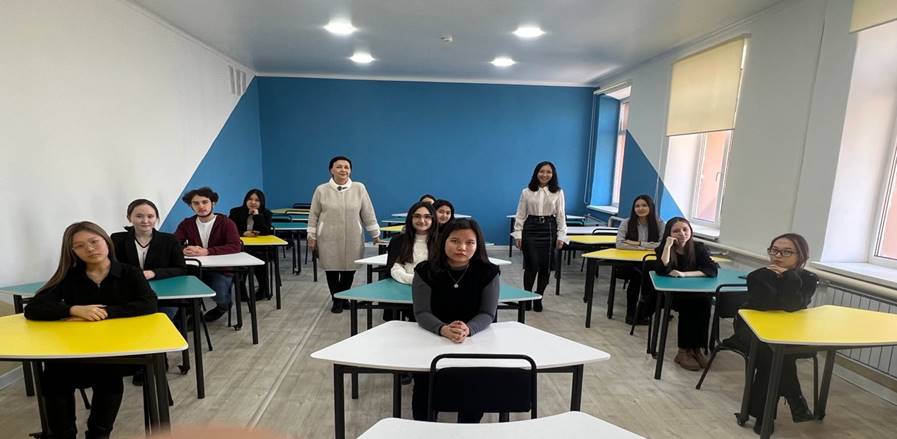
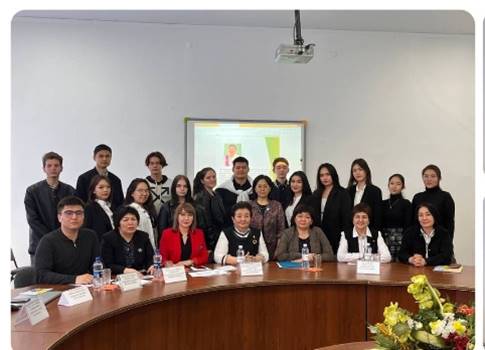
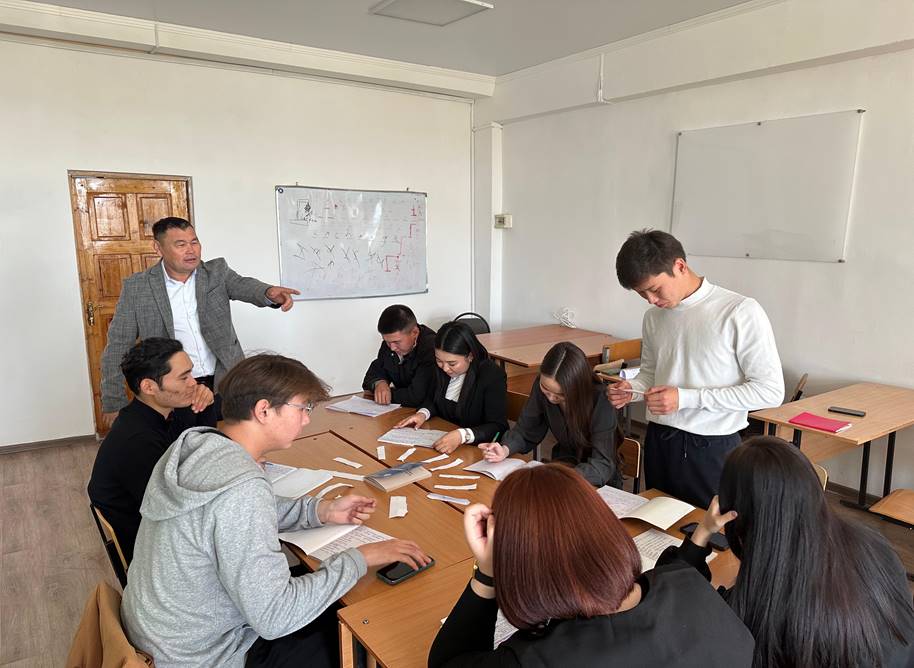
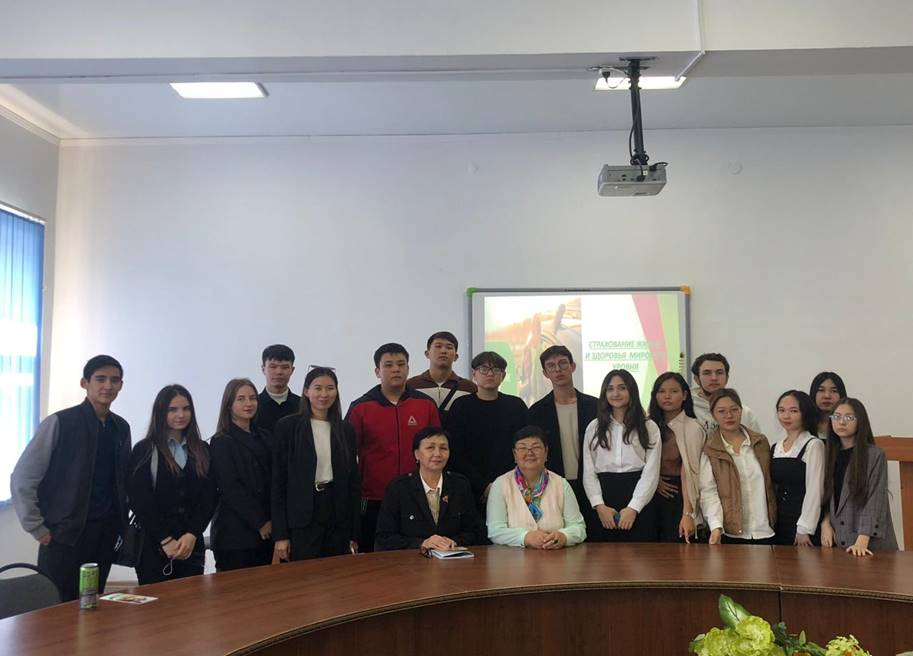
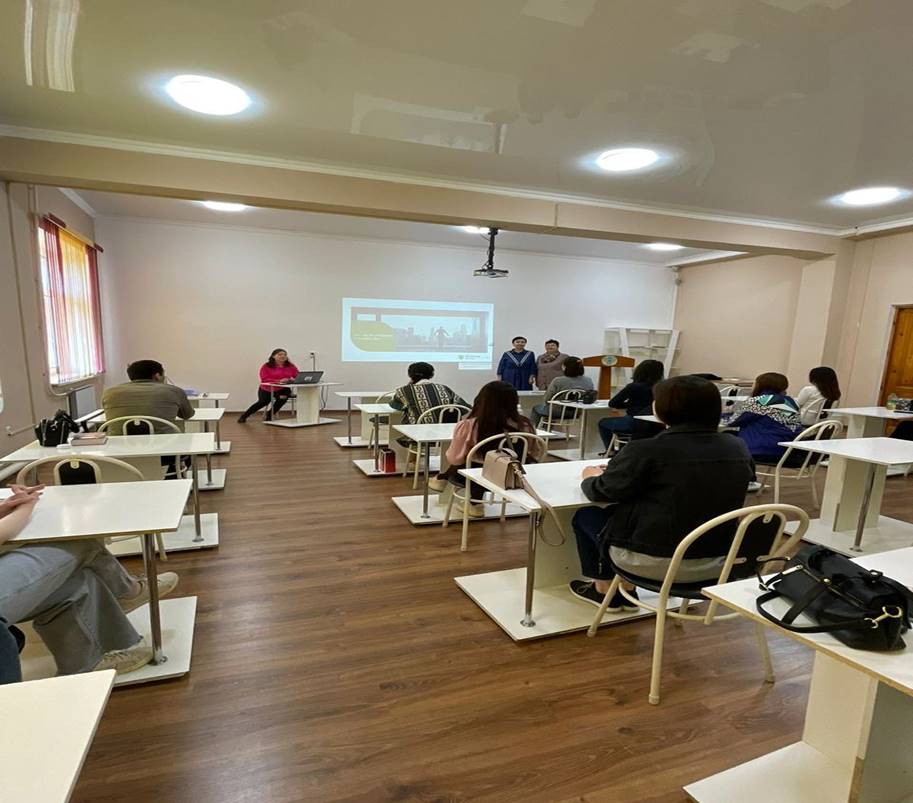
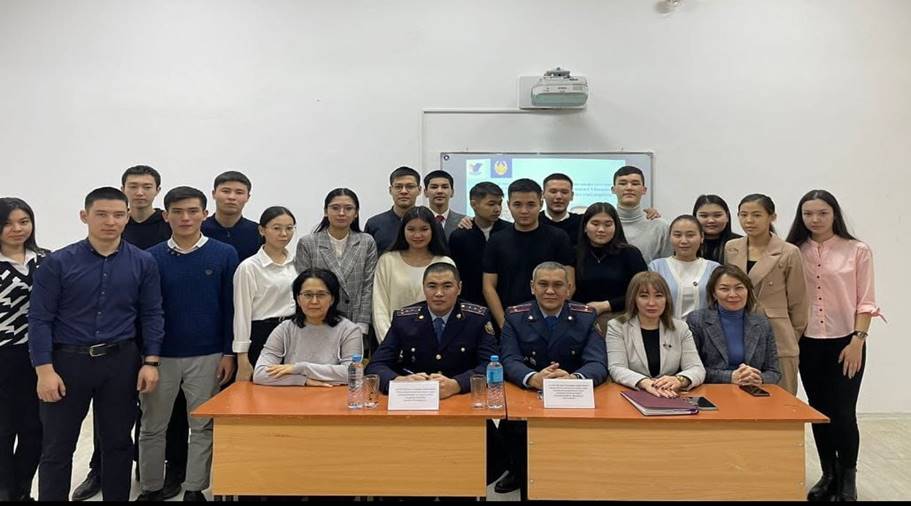
In the process of mastering educational programs, students’ diverse interests develop, their leadership and communicative qualities are formed. The development of educational programs includes the study of a number of disciplines: “Management and leadership”, “International cooperation in criminal matters”, “Research methods”, providing for the formation of students’ communicative abilities and leadership qualities. The relevance of developing students’ leadership skills is associated with the formation of general cultural and professional competencies, as well as with planning the future career and personal growth of young professionals.
The research work of students and undergraduates is introduced into the educational process in order to form the skills of independent research, analysis of scientific articles, texts, reports, interviews, documents. Teachers of the department actively use role-playing and business games, interactive learning methods in the educational process. The activities of all scientific circles and problem groups are aimed at increasing the scientific potential of students. Members of scientific circles and problem groups actively participate in scientific conferences, competitions, and legal Olympiads.
The teaching staff of the department has a high rating for publications in scientific journals, at international and national scientific and practical conferences, for the publication of textbooks, textbooks, monographs.
Professional development within the framework of the activation of the educational process is carried out in accordance with the plan of the faculty and the university in various areas in order to strengthen the scientific, pedagogical, educational and methodological levels of teacher training. The teachers of the Department of Jurisprudence covered various forms of professional development: taking courses at leading universities, on educational and methodological activities, theoretical seminars and field profile seminars, seminars on the use of interactive teaching methods. The teachers of the department annually improve their level of professional skills at advanced training courses.
The history of the department
Educational and scientific activities of the department
Material technical base
Achievements
Our graduates and employment